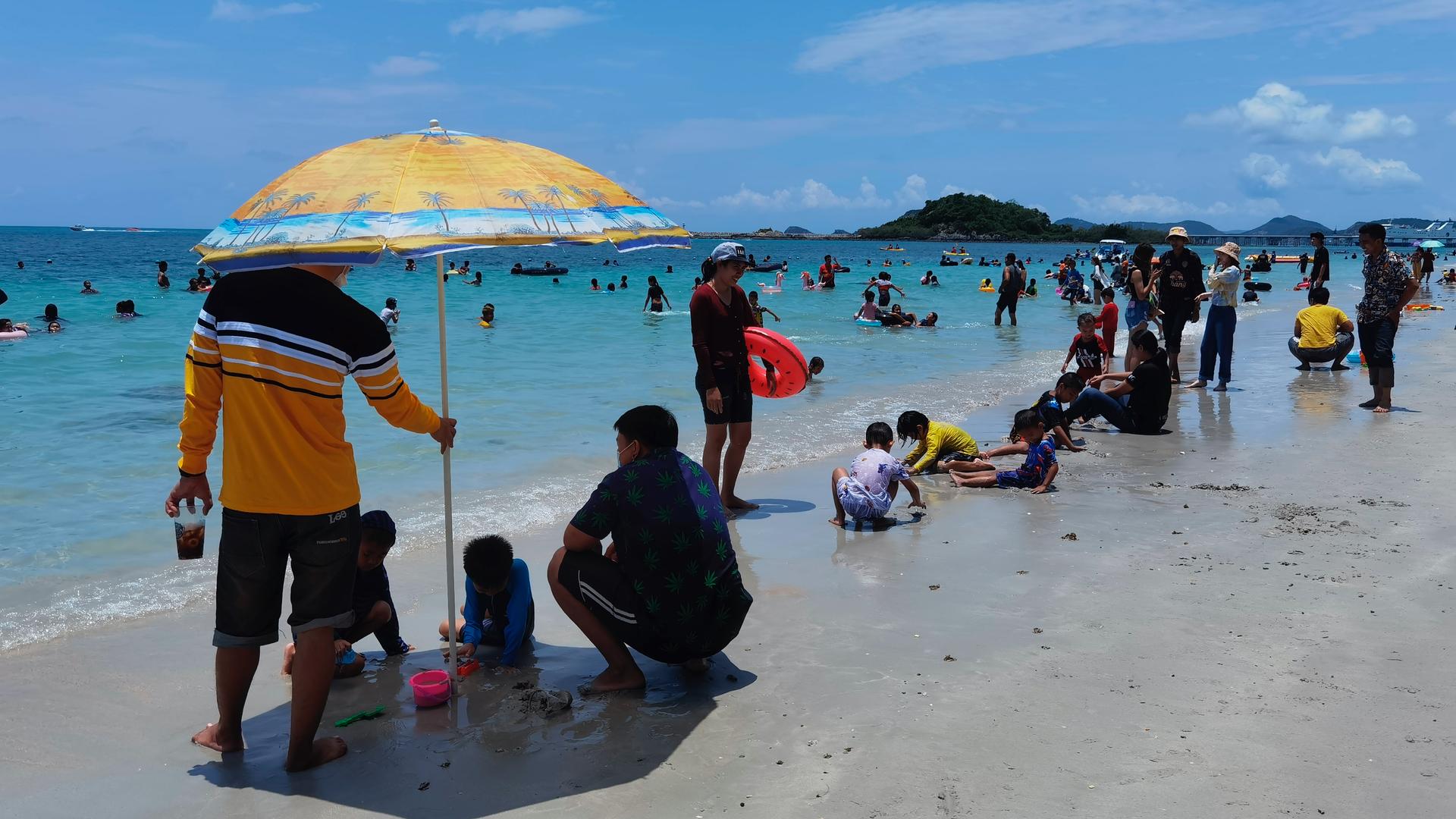One Thai island’s bold scheme to bring back tourists
Before the pandemic, Thailand was among the world’s most-visited countries, bringing in 40 million travelers each year. That’s the equivalent of California’s entire population showing up, spending money and keeping the economy humming.
Then came COVID-19, which effectively closed Thailand to tourists. It is still possible to visit — if you don’t mind spending a week quarantined in a hotel room, sans alcohol, except for the isopropyl alcohol-dipped swabs inserted up your nose, part of a battery of tests to prove you are uninfected. (There have been few takers.)
Related: A Thai organization’s crusade against blaspheming Buddha
Hit hardest are Thailand’s tourist hot spots, such as Phuket — an island of crystal-sand beaches, palm trees and resorts, once relying on 10 million annual foreign guests. Now, it is semideserted and the locals, almost all of them linked to the tourism economy, are desperate.
“People have no jobs, no income and they have kids to raise, family members to take care of,” said Bhummikitti Ruktaengam, president of the Phuket Tourism Association.
Many Phuket workers have lapsed into poverty, forcing former bartenders, housekeepers and taxi drivers back to rice-farming villages to survive.
“They don’t know what to do,” Bhummikitti said.
But a scheme for Phuket has emerged — one that is controversial and not guaranteed to work. However, if executed right, it could help lead Southeast Asia’s tourism industry out of the doldrums.
Here is the plan: Thailand won’t just throw open its doors to tourists until many of its people are vaccinated. Mexico did that and now has more than 200,000 COVID-19 deaths; Thailand still has less than 100.
Related: Does Thailand have a monkey labor problem?
Vaccinations are the only way out of this quagmire, Bhummikitti said, yet the government rollout has been slow, jabbing only half a percent of the population so far.
“We understand the government may not have enough vaccines. So, we want to buy them ourselves.”
“We understand the government may not have enough vaccines,” Bhummikitti said. “So, we want to buy them ourselves.”
Who is “we” exactly? A group of Phuket businesspeople who own hotels, restaurants, tour companies, scuba shops and more. They’re ready to hit the free market, buying up enough vaccines to jab roughly 70% of the island’s population — creating an army of COVID-19-resistant bellboys, cooks, masseurs and dive instructors.
Related: Thailand set to legalize LGBTQ unions, a rare step in Asia
They hope to complete this mission as early as July 1, declaring Phuket island a “sandbox” and welcoming all vaccinated foreigners. None will have to quarantine. They can roam Phuket as they like — as long as they don’t leave the island for one week.
“This strategy came from us, the businesspeople. We have an instinct to survive.”
“This strategy came from us, the businesspeople,” Bhummikitti said. “We have an instinct to survive.”
But the sandbox plan begs questions. Is it right to vaccinate a 25-year-old tour guide before an 80-year-old grandma — just because he has a job on this popular island?
Can a tourism association really procure nearly 1 million doses, the amount needed to vaccinate roughly 3 of every 4 people working in Phuket?
And why are tourism magnates doing the work of officials? Perhaps sensitive to that question, the government has since joined the “sandbox” operation. Officials ultimately decided to front the first 100,000 vaccines (all Sinovac, made in China) which are already being administered with the help of public nurses.
Related: In Thailand, posting a selfie with a beer is a potential crime
Thai officials promise to provide more vaccines to Phuket — but it remains likely, Bhummikitti says, that tourism magnates will have to buy many doses themselves.
“We don’t know the budget yet,” he said, “but we’re ready to go for it. Whatever amount it will take.”
Adding to the uncertainty is a new outbreak in Thailand. Following a long lull, mid-April has seen a spike with several thousand new infections discovered in recent days. This may be a tiny blip compared to cities such as London or New York. But in countries such as Thailand, unaccustomed to mass COVID-19 deaths, it is alarming.
As for Phuket’s dream of opening up to vaccinated tourists this summer, Bhummikitti does not promise it will go perfectly — but “at least now, when you talk to anyone in Phuket, they have fire in their eyes. They have hope again. And that’s the bottom line. You can’t live with no hope.”
